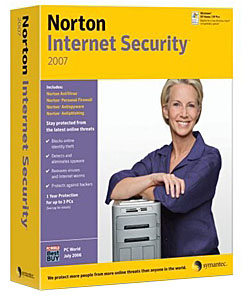 Even
if your PC runs an anti-virus program, the risk of a data-destroying
infection is real. New viruses can claim casualties before anti-virus
vendors can identify them. Your best line of defense is to assume your
PC will become infected--and take steps to prevent it. Even
if your PC runs an anti-virus program, the risk of a data-destroying
infection is real. New viruses can claim casualties before anti-virus
vendors can identify them. Your best line of defense is to assume your
PC will become infected--and take steps to prevent it.
Update the latest virus program data files that identify specific
viruses. Fortunately, most programs now remind you when signature
files need to be updated, and will download the update for you from
the company's Web site at the click of a button. The best, including
Norton AntiVirus, PC-cillin, McAfee VirusScan, AVG and AVAST
Anti-virus programs perform this job admirably. You can download and
use the last two for free from Download.com.
Keep a boot disk handy. A serious infestation may prevent your PC
from starting up. That's when you reach for the boot disk–a floppy
from which you can run the anti-virus program's scanner if your PC
becomes inoperable. You should boot from a clean disk before removing
a virus. You can also boot from an anti-virus program CD, which will
let you also run a scan before Windows loads. If you suspect a virus
because your PC is behaving irrationally, this is the best way to go.
Use more than one anti-virus utility. No single anti-virus package
can detect and remove every virus, so using multiple programs lessens
the chance of a virus getting through. Buy a good one and download a
free one from the Internet. A second opinion never hurts.
Unfortunately, the days of truly free software are on the wane.
Anti-virus software makers like Panda Software of Spain let you scan
your computer online from their Web sites. However, the scan only
displays the results. To fix any virus, trojan, or worm, you’ll have
to pay.
Likewise, companies like Norton know that you’re at their mercy,
so they’ve increased the price of their software accordingly,
sometime to astronomical levels. Another trick they’re pulling is
allowing you to only use the software on one PC or else you have to
buy multiple PC versions, which cost considerably more. Plus, you’ll
have to pay a renewal fee once a year, which can be more than the cost
of a new program. Sure, they have to endure costs to develop new virus
definitions to fight viruses, but like pharmaceutical companies, they
know that losing the information on your PC is tantamount to losing
your life. And you’ll do anything to prevent that.
Clean up after a virus invasion. Once you rid your PC of its
marauder, don't stop there. Read up on what the virus does to files,
then take steps to eliminate unpleasant surprises down the road. Just
as you’ve learned to drive defensively to avoid automobile
accidents, so should you learn to operate your computer defensively to
keep your information intact.
And, finally, avoid E-mail attachments from strangers. The new worm
viruses have found a way to infect E-mail. Lastly, never download
files from the Internet without some sort of protective program to
check them first. |
